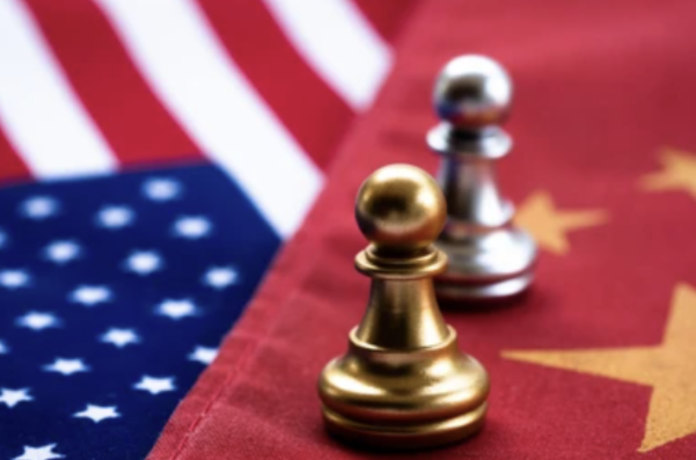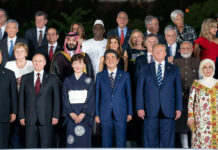![]()
President Xi Jinping of China arrived in San Francisco on Nov. 14 for the 30th APEC Economic Leader’s Meeting and a China–United States summit meeting at the invitation of President Joe Biden. This is Xi’s first visit to the U.S. in six years as Washington looks to ease tensions with Beijing. Xi’s visit occurred a decade after Vice President Biden visited China in 2011. The highly anticipated meeting came amid a complicated geopolitical situation in the Middle East and the ongoing Russia-Ukraine War. During the conversation, Xi and Biden exchanged views on various topics including regional issues, security and trade.
China–U.S. relations have nosedived in recent years because of a series of accidents. In February 2022, the U.S. shot down a Chinese high-altitude balloon off the coast of South Carolina. While Beijing emphasized that the balloon was for civilian purposes, Washington insisted it was a spy balloon collecting intelligence. Frictions between China and the U.S. also surfaced in the Taiwan Strait and the South China Sea where a Chinese Navy warship suddenly cut off the path of a U.S. destroyer and the Chinese Air Force intercepted a U.S. bomber. Beijing accused the U.S. military plane of traveling thousands of miles to China’s doorstep to flex military muscle. This act is not conducive to regional peace and stability.
The China-U.S. summit is the first face-to-face meeting between Xi and Biden in a year after tensions between China and the U.S. peaked over multiple issues, including trade, human rights and the pandemic. Some positive signals came from this summit. The two leaders made progress toward enhancing drug regulations, recovering military communications, strengthening cultural ties and solving the climate crisis.
The leaders both expressed support for the resumption of bilateral cooperation to combat global illicit drug manufacturing and trafficking, particularly focusing on synthetic drugs like fentanyl, a drug that is 50 times more potent than heroin and has caused thousands of deaths in the U.S. China agreed to crack down on companies exporting chemicals used to make fentanyl. The two countries will establish a working group for future communication and law enforcement coordination on this issue.
Xi and Biden also intended to recover systems of high-level military-to-military communication. They committed to revive the U.S.-China Defense Policy Coordination Talks and the U.S.-China Military Maritime Consultative Agreement Meetings (MMCA). The MMCA is an operator-level exchange to discuss issues of maritime safety at sea. It also provided a forum for discussing specifics that will ensure a common understanding of operating procedures between vessels of the U.S. Navy and the People’s Liberation Army-Navy. General Charles Q. Brown Jr., the chairman of the Joint Chiefs of Staff, said military communication is crucial and will ensure no miscalculation leads to further conflict. Revitalizing these channels is expected to ameliorate the military frictions between China and the U.S. in the South China Sea.
The two leaders also reiterated the importance of cultural ties between the American people and the Chinese people. They encouraged the expansion of cultural, educational, student, youth, sports and business exchanges. There are roughly 300,000 Chinese students in the U.S., but there are only hundreds of Americans studying in China. Both governments suggest increasing interactions between students. The two sides are also committed to working to increase passenger flights between the U.S. and China in 2024; exchanges will be more approachable with better transportation conditions, creating a stronger foundation for Chinese and Americans to interact with each other.
Both leaders are aware of the importance of cooperation in tackling crucial transnational issues such as the climate crisis. They welcome positive and constructive bilateral dialogues between special envoys for climate. Earlier this year, the U.S. Special Presidential Envoy of Climate, John Kerry, met with his Chinese counterpart, Xie Zhenhua, in Beijing. Kerry revived climate talks with the Chinese government and achieved significant progress on climate cooperation.
Before the COP28 climate summit, the world’s two biggest polluters agreed to work together on curbing methane and plastic pollution. Both China and the US will massively promote renewable energy deployment and use it to gradually and orderly substitute oil, gas and coal power generation to reduce greenhouse gas emissions. The two countries reached an agreement on tackling climate issues together.
Xi and Biden differed on some issues.
Biden reiterated U.S. support for Israel’s right to defend itself against terrorism during the Israel-Hamas conflict, while Xi showed great concern for the humanitarian status of the Palestinian people and called for peacemaking solutions in this regional conflict. Regarding the ongoing Russia-Ukraine War, Biden made his point clear: the U.S. will continue to stand with Ukraine against Russia’s aggression, while Beijing has not yet denounced Moscow’s invasion.
Both Beijing and Washinton are seeking better relations. The two global powers need to recover communication and thaw their recent negative relations in a complicated geopolitical context. The upcoming 2024 U.S. presidential election might present still more uncertainty in Biden and Xi’s relationship. Biden and the Democratic party face great pressure ahead of the 2024 election.
Restoring U.S.-China relations might be Biden’s attempt to regain the trust and support of the American people to win a second term. Biden’s impact on U.S. foreign policy in his first term is very concerning. Some see the Russia-Ukraine War and the Israel-Hamas Conflict as foreign policy failures on the part of his administration. Biden’s performance in his first term has already put him at a disadvantage in comparison to his opponents. If he can achieve less hostile relations with China, Biden may have a chance to win a second term.












